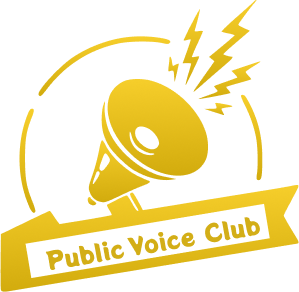Artificial Intelligence (AI) has revolutionized the way marketers approach their strategies and campaigns. By utilizing AI tools, marketers can gain valuable insights, automate processes, and improve overall efficiency. As we look ahead to 2025, the landscape of AI tools for marketers is constantly evolving. In this blog post, we will explore some of the top AI tools that marketers can utilize to stay ahead of the game.
Chatbots
Chatbots have become an essential tool for marketers to provide instant communication with customers. These AI-powered virtual assistants can engage with users in real-time, answer questions, and provide personalized recommendations. Chatbots can also collect valuable data on user preferences and behavior, allowing marketers to tailor their messaging accordingly. In 2025, we can expect to see even more advanced chatbots that are capable of more complex interactions and personalized experiences.
Predictive Analytics
One of the key advantages of AI for marketers is the ability to predict future trends and outcomes. Predictive analytics tools use machine learning algorithms to analyze data and forecast future events, helping marketers make informed decisions about their campaigns. By leveraging predictive analytics, marketers can optimize their strategies, improve targeting, and maximize ROI. In 2025, we can expect to see more sophisticated predictive analytics tools that provide even more accurate insights.
Personalization Tools
Personalization is crucial for effective marketing campaigns, and AI tools can help marketers deliver customized experiences to their target audience. Personalization tools use AI algorithms to analyze user data and behavior, allowing marketers to create tailored content and recommendations. In 2025, we can expect to see AI-powered personalization tools that can deliver hyper-targeted messaging across multiple channels, leading to higher engagement and conversion rates.
Content Optimization
AI tools can also help marketers optimize their content for better performance. Content optimization tools use natural language processing and machine learning to analyze and improve the quality of written and visual content. By using AI to optimize their content, marketers can increase visibility, drive traffic, and enhance the overall user experience. In 2025, we can expect to see even more advanced content optimization tools that can generate data-driven insights for creating high-performing content.
Marketing Automation
Marketing automation tools have become essential for streamlining marketing processes and workflows. AI-powered marketing automation platforms can automate repetitive tasks, segment audiences, and personalize communications at scale. By using marketing automation, marketers can save time and resources while improving productivity and ROI. In 2025, we can expect to see more advanced marketing automation tools that incorporate AI for more intelligent and efficient campaign management.
Voice Search Optimization
With the rise of voice-activated devices and virtual assistants, marketers need to optimize their content for voice search. Voice search optimization tools use AI algorithms to analyze and optimize content for voice-activated search queries. By optimizing for voice search, marketers can improve their visibility and reach a larger audience through voice-enabled devices. In 2025, we can expect to see more sophisticated voice search optimization tools that can help marketers stay ahead in the rapidly evolving voice search landscape.
Social Media Listening
Social media listening tools use AI to monitor and analyze conversations on social media platforms. By tracking mentions, sentiment, and trends, marketers can gain valuable insights into their target audience’s preferences and behavior. Social media listening tools can help marketers identify opportunities, track competitors, and engage with customers in real-time. In 2025, we can expect to see more advanced social media listening tools that can provide deeper insights and predictive analytics for effective social media marketing strategies.
Augmented Reality (AR) and Virtual Reality (VR)
Augmented Reality (AR) and Virtual Reality (VR) technologies have the potential to revolutionize the way marketers engage with their audience. AI-powered AR and VR tools can create immersive and interactive experiences for users, allowing marketers to showcase products and services in a more engaging and memorable way. By incorporating AR and VR into their marketing strategies, marketers can drive brand awareness, increase engagement, and boost sales. In 2025, we can expect to see more advanced AR and VR tools that leverage AI for more personalized and impactful marketing experiences.
As we look ahead to 2025, the use of AI tools in marketing will continue to grow and evolve. By leveraging these top AI tools, marketers can stay ahead of the competition, improve efficiency, and drive better results for their campaigns. Whether it’s chatbots, predictive analytics, personalization tools, or AR and VR technologies, AI tools offer endless possibilities for marketers to enhance their strategies and connect with their audience in new and innovative ways.
